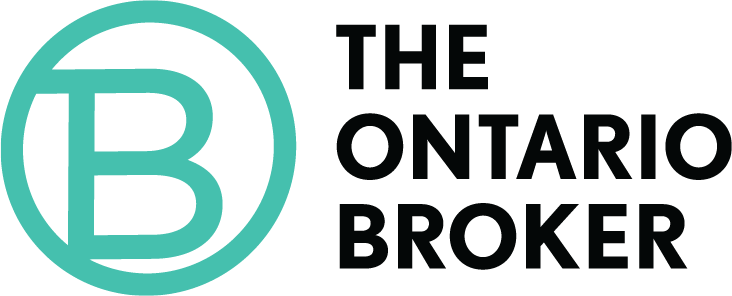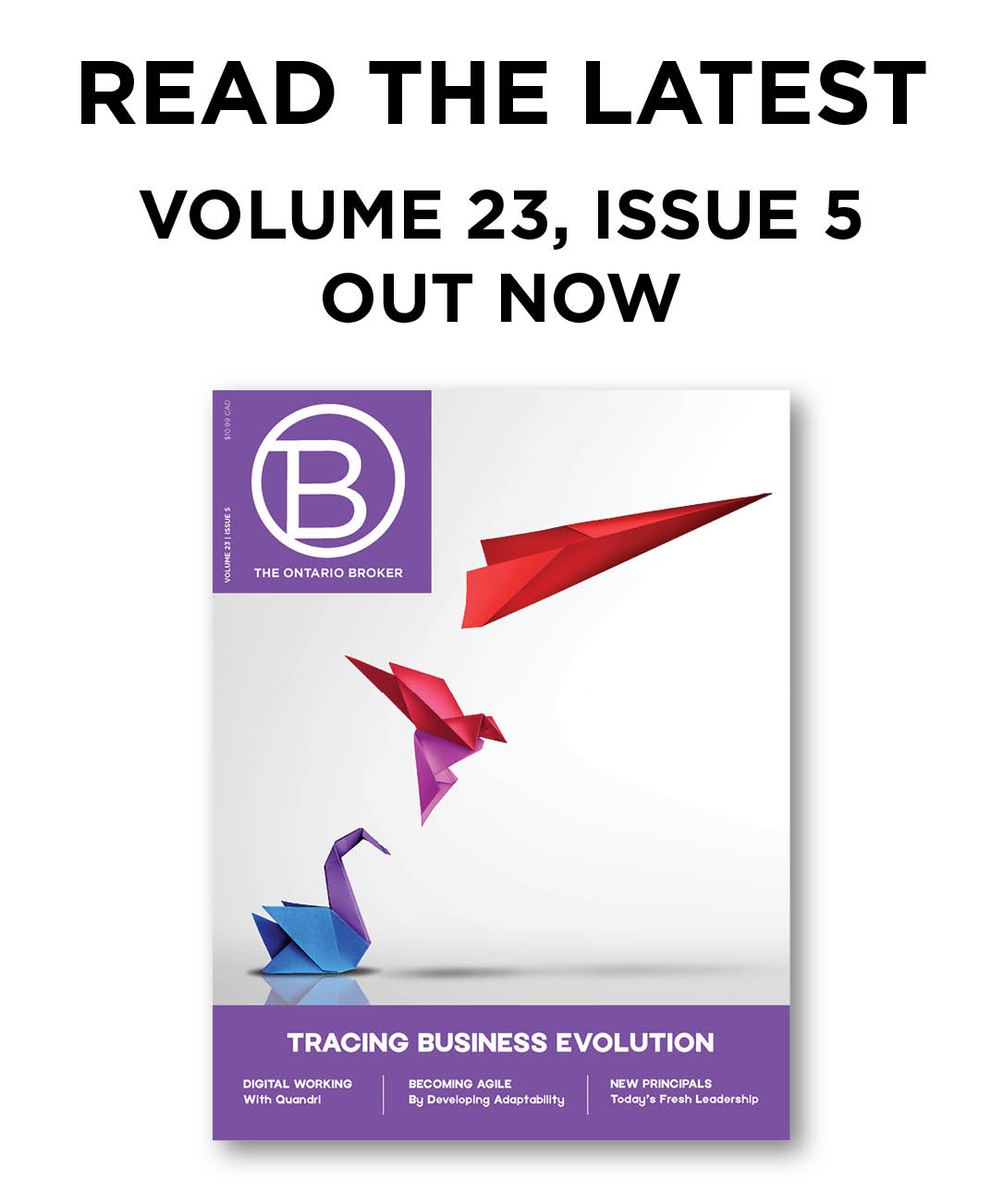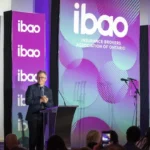

Richard Zehr, VP Of Operations, Zehr Insurance

Thomas Thompson, Co-op Student, Zehr Insurance

Asif Neaz, Client Solutions Associate, Gallagher

Sara Runnalls, VP of Operations & Client Solutions, Gallagher
The insurance industry is big and complex, and it can look very different based on where someone is in their career. To capture the ranging perspectives within brokerages, we posed the same questions to a leader and an insurance rookie in each brokerage—here’s the take from Zehr Insurance and Gallagher.
Why did you choose a career in insurance?
RZ: Super unoriginal, but I got into insurance because it’s a family business. I’ve been fortunate to be around insurance and the brokerage office my entire life and saw from an early age that it was a gratifying career. Seeing how excited my dad was about his business and his clients really cemented that the industry was a great place to be. As I’ve continued to work and learn within the industry, I could not imagine choosing a better career. There are so many learning opportunities, and every day is different. Believe it or not, insurance is an exciting and adaptive industry.
TT: My decision to pursue a career in insurance was mainly influenced by the fact I had a friend who worked in the industry. The positive experience that my friend had in developing their career motivated me to explore my options in insurance. I was also looking for a change in my life as I wanted to build a career on a solid foundation. That is why I decided to enroll in the Business-Insurance Co-op program at Conestoga College.
SR: I originally didn’t plan to go into insurance, in fact, it’s my second career—my first career was as a professional show jumping rider and equestrian coach. I was supposed to go into investment banking, but a twist of fate and a trusted family friend had me taking an entry-level position with a reinsurance company instead. I deliberately entered the broking world in 1998 by applying to my parents’ horse and farm insurance broker. It was a great entry into the industry for me because I was able to use my extensive knowledge of horses and apply it to the insurance needed for the industry. My experience made it easy to talk with my clients while I was building my confidence in providing insurance advice.
AN: Like many other people, I kind of fell into this industry. It was the summer of 2019, and I was looking for programs to apply to when I came across this Insurance Management program at Humber College. It was quite late and most of the other programs that I was trying to get into were already filled, so I admitted myself to this program. Little did I know that it was one of the best decisions of my life. As I started the program, I learned about this amazing industry and that insurance was not just about calling clients to sell insurance, which was the perception I had of this industry.
What do you see as the biggest opportunities in insurance?
RZ: From a brokerage perspective, I would say that learning is the biggest opportunity. Whether it’s learning about the products available within our industry or learning about your clients and their own businesses. Insurance policies are technical contracts, meaning that it takes a deep understanding of policy inclusions and exclusions to speak intelligently about the services we provide. If you’re a new broker coming into a brokerage it’s important to understand that everyone around you wants you to succeed and will help you as much as possible. Bringing forward ideas or viable solutions is an important learning curve to take, even if you might be incorrect.
TT: As someone just entering a career in insurance, there are many different roles available. The one thing I have observed is that someone entering the industry can really shape their own career track. The tremendous support that exists within the insurance industry is amazing. People established in the industry have a genuine interest in mentoring new talent to have the best possible outcomes for their career goals. Also, industry organizations such as the IBAO have several tools and resources to plan your career and education goals as you enter the industry and continue to develop in it.
SR: The cool thing about insurance is that it has no choice but to adapt at the same pace as the rest of the world around us. The biggest opportunities lie in newly developing industries that have brand new exposures. Keep in mind, however, that these new risks tend to be the toughest to insure. Look at cannabis as an example—10 years ago, there was no need for cannabis insurance and now it’s a booming industry in Canada.
AN: During the pandemic when people in so many other industries were losing jobs, insurance companies and brokerages were hiring more people. People who get into this industry and stick around have the chance to move up very quickly as companies are always looking for people.
“The most important skill needed to succeed in insurance is the ability to adapt.”
Facing a talent shortage, how do you think we can attract more people to the industry?
RZ: Update our technology—it’s a huge issue. If I’m graduating high school, university or college and I grew up engaged with beautiful, colourful, and intuitive technology and I’m looking at where I want to make my career, is it going to be insurance? For many brokerages, their core system was built before a lot of these new entrants to the workforce were born. The double or triple entry of data into multiple systems to issue policies and changes is too much for someone new. You need to learn and understand an already complex product. Now you also need to learn how to use all the systems in a broker’s office, 10 or more different insurer portals, and however many other ancillary programs to effectively do your job. These challenges could be insurmountable hurdles for someone new to the industry.
TT: Continuing to generate awareness around the opportunities available in the insurance industry is a way to bring in more talent. A part of the reason I can answer this is that the IBAO has made tremendous efforts to connect with post-secondary students at Ontario’s colleges and universities. Currently, I’m completing a co-op placement at Zehr Insurance Brokers. I wouldn’t be here if I had not met my manager Richard Zehr at the IBAO job fair last November. If I didn’t have friends who already worked in the industry, I wouldn’t have known about the possible career avenues available to someone entering the field.
SR: If you like your job, tell people about it. Be proud of the industry and clients that you serve. Get on your social media platform of choice and let your network know that your company is hiring. Volunteer for programs that tell young people or career changers about the industry. Treat your clients well so that the industry maintains an excellent reputation.
AN: I think companies and professional organizations should reach out to universities and colleges to let people know about this amazing industry. Like myself, many other people are living under the impression that insurance jobs are all about selling insurance. They’re unaware that this industry has many diverse types of roles. Many people who do their major in Arts usually go back to college to get their diplomas in a more specialized field. I feel like if they learn about the insurance industry and the talent shortage, they’ll be more inclined to go to school for insurance and get into this industry.
What do you see as the most important skills to succeed in the industry?
RZ: Empathy. When clients are purchasing insurance, they’ve probably never had a claim and are not super excited about making the purchase. Empathize with their grudges about insurance and then overcome those objections and take the time to explain to them how their policy works. This will enhance the relationship and trust the client carries with you as a broker and advisor. If you should ever work with a client experiencing a claim, it’s even more important to be able to empathize with that experience. Understanding that it’s a very frustrating process and in many cases, these people are exhausted is key to managing their expectations and the situation.
TT: The one skill I would say that leads to success in the insurance industry is to be open-minded and willingness to continuously learn. Professionals in insurance are constantly working with change and must understand the unique challenges and situations of their clients. To navigate change and serve both your clients and colleagues in the industry, it’s important to be open-minded about different possibilities.
SR: The most important skill needed to succeed in insurance is the ability to adapt. People who can embrace change tend to be nimble solution seekers. I would also say get comfortable with technology and stay current with it. Finally, the ability to empathize is extremely valuable, whether it is with a client who has just suffered a loss, or an employee who is struggling. Empathy helps you connect with people, and that connection is necessary to build trust. Trust is what will get you across the finish line with a client and keep them loyal over the long term.
AN: The most important skill would be communication. I feel like most roles in the insurance industry are all about communicating with other people. Whether you are a broker, underwriter, or adjustor, most of the time you must communicate with other people. Working as a broker has taught me the importance of communicating in a clear, concise, and timely manner. Organizational skills are especially important to thrive in this industry. We must deal with so many different things, it is imperative that we keep ourselves organized.





